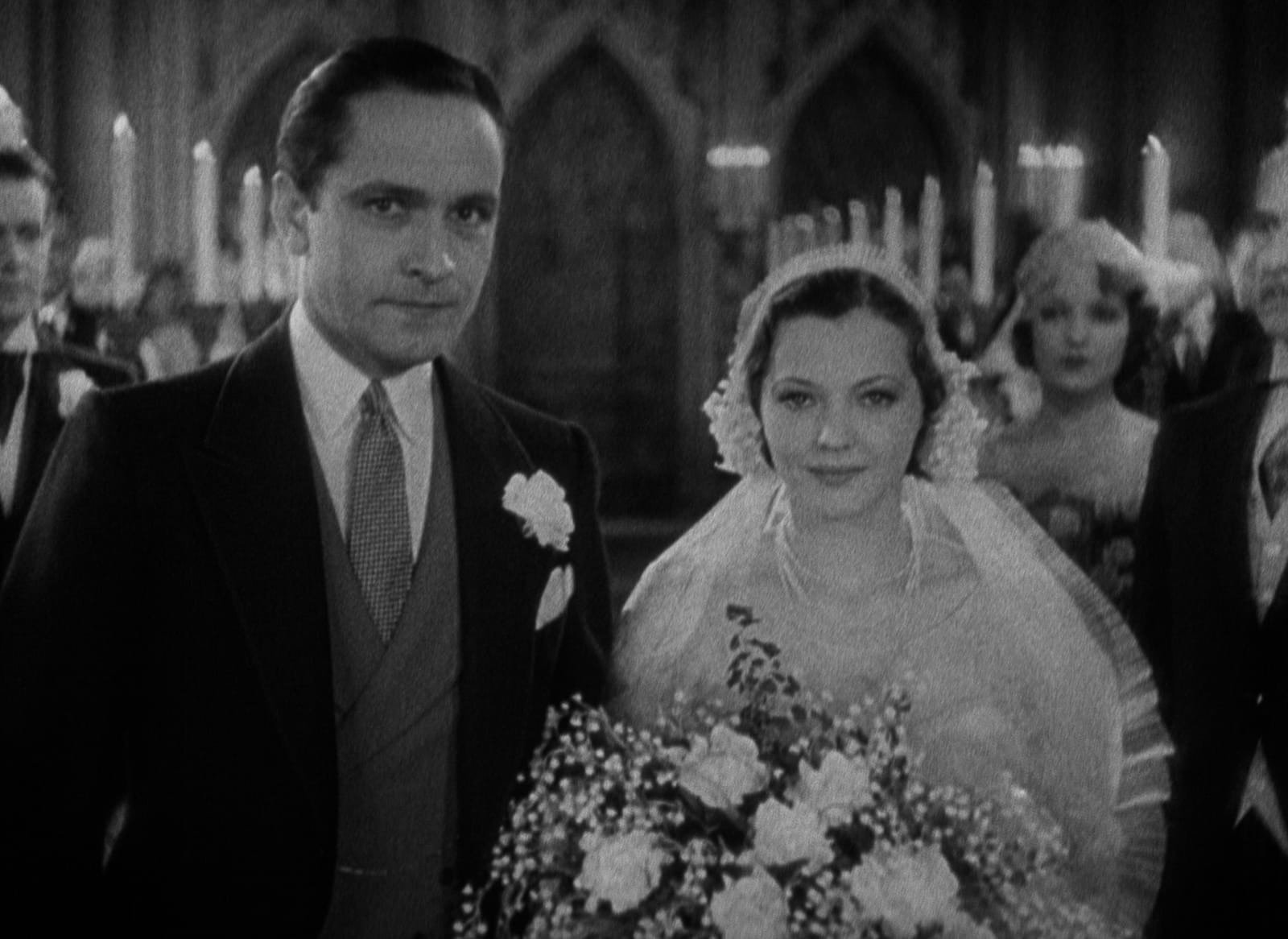This was Arzner’s tenth feature film, and her last for Paramount Studios (known at the beginning of her career as Famous Players–Lasky Corporation), where she had worked her way up the cinematic ladder in the twenties with jobs ranging from script girl and cutter to editor and screenwriter. She made her directorial debut in 1927 with Fashions for Women. By 1932, Arzner was well-known and respected for her efficiency and problem-solving, and especially for her work with actors—women actors in particular. Through the silent and early sound eras, her work with Esther Ralston, Clara Bow, and Ruth Chatterton gained Arzner a reputation as a star-maker. That she was entrusted with Bow’s first sound film, The Wild Party, shows how quickly she had earned respect as a director. Financial crises at Paramount in the early thirties, combined with Arzner’s own desire for new opportunities, led to her departure from the studio to become an independent director for hire. After Merrily We Go to Hell, she would make Christopher Strong for RKO with Katharine Hepburn—another emerging star whose persona she helped to create.
Arzner’s work with male actors is not as well known as her work with women, but it deserves mention as well. March was an established star when Merrily We Go to Hell was released, due in no small part to the films he had already made with Arzner. The movie was their fourth and final collaboration, after The Wild Party, Sarah and Son (1930), and Honor Among Lovers (1931). March was a gifted actor, and at the time of the release of Merrily We Go to Hell, he was still basking in the success of his virtuoso performance in Dr. Jekyll and Mr. Hyde (Rouben Mamoulian, 1931), which had brought him wide acclaim and a best actor Oscar. Under Arzner’s direction, March’s performances are subtler and just as effective. In all four of his roles for her, he plays a man of some authority (a professor in The Wild Party, a lawyer in Sarah and Son, a Wall Street trader in Honor Among Lovers, and a respected journalist in Merrily We Go to Hell). Yet the authority of these characters is undercut by their reluctance to take action. Professor “Gil” Gilmore in The Wild Party loves Clara Bow’s character but avoids her for fear of her impetuous ways, and in Sarah and Son, Howard Vanning, a lawyer for the family that refuses to let Sarah (Ruth Chatterton) see her son, loves Sarah but fears that she may well be unstable. Jerry Stafford, the trader in Honor Among Lovers, knows he loves his secretary, Julia (Claudette Colbert), but he cannot make a commitment, just as Jerry is unable to tell Joan he loves her in Merrily We Go to Hell. All of the couples are united at the conclusions of these films, but the hesitations of March’s characters delay the resolution of a “happy ending.” He brings dry wit and deadpan humor to his role as Jerry, so that even his dark descent into addiction has a charming and amusing veneer. March has an uncanny ability to portray indecisiveness as both infuriating and sympathetic, so that his characters in Arzner’s films, and especially Jerry in Merrily We Go to Hell, embody the ambivalence of the films themselves—in this case toward the institution of marriage.
Indeed, one of the key features of Arzner’s work in general is the ironic detachment her films generate from the norms of female behavior, calling attention to how women suffer in the socially sanctioned situations designed to make them flourish. Marriage is the most common such norm, a source of a variety of forms of renunciation, among them the sacrifice of career for love (Christopher Strong), the excessive devotion to a house at the expense of a spouse (Craig’s Wife), and the exchange of a “wild party” of a life for marriage defined by a man’s desires (The Wild Party). The feminism of Arzner’s films is grounded in how they offer ironic comments on the usual solutions for women, rather than embracing them.
“Joan’s story is told most forcefully in close-ups that reveal Sidney’s most striking characteristic: her expressive face.”









